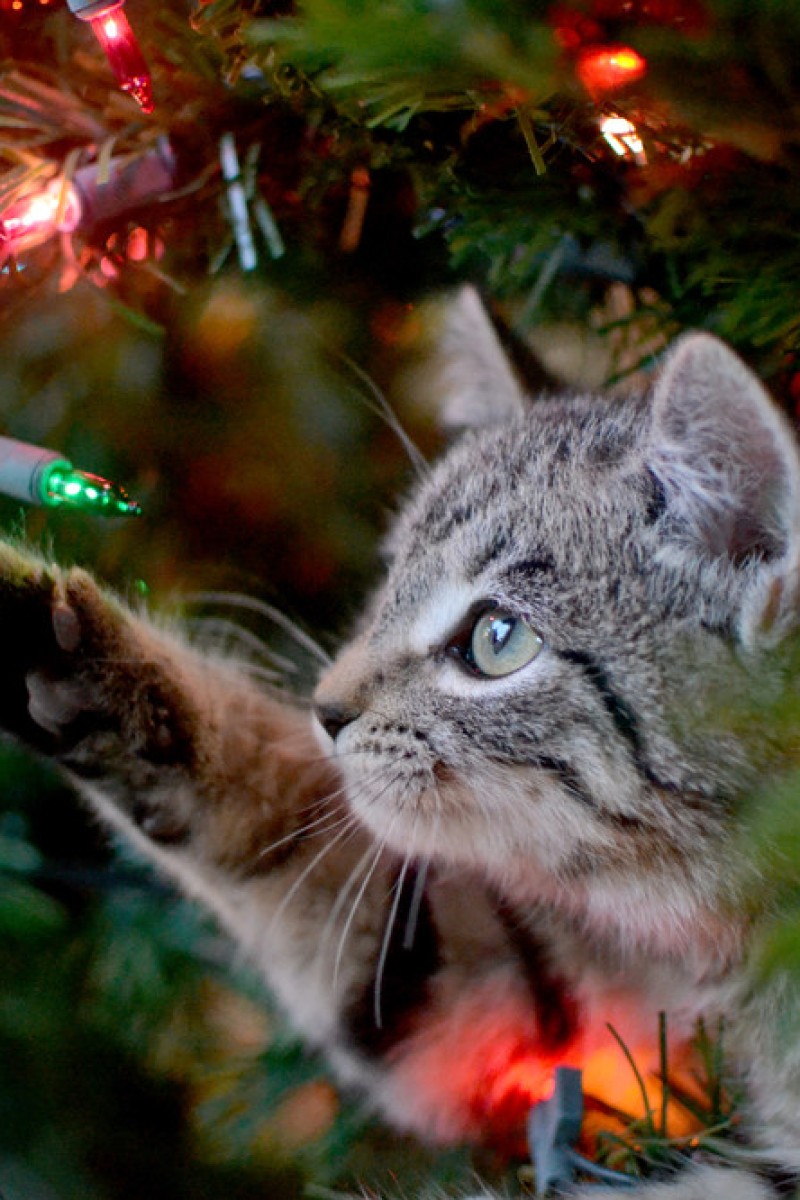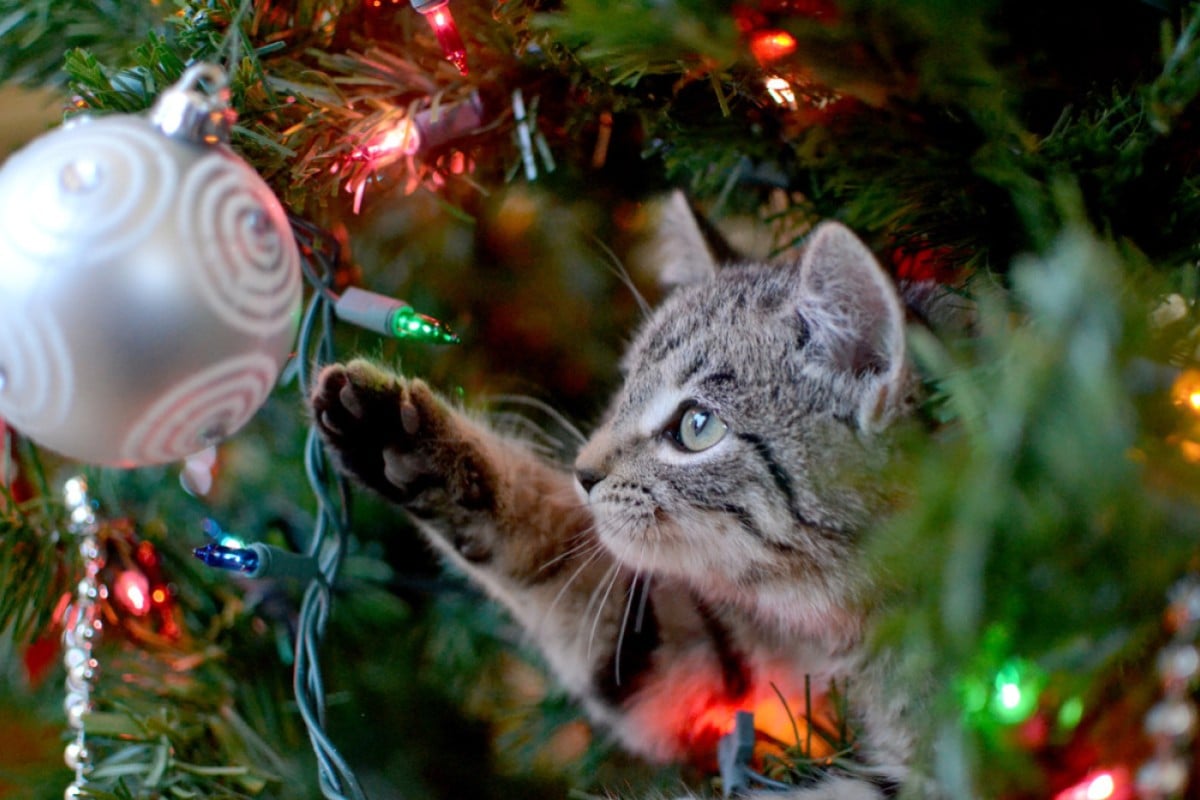
6 Christmas food and decor that are deadly for your pets
- Some of our favourite Christmas traditions could be putting our pets at risk
- From mistletoe to desserts with Xylitol, here are some top items you want to avoid giving to your furry friends
 Some of these festive decorations are a hazard for your fluffy family members. Photo: Shutterstock
Some of these festive decorations are a hazard for your fluffy family members. Photo: ShutterstockIt’s almost second nature to want to grab your pet and have them take pictures next to your new holiday decorations. Or maybe give them a little bit of your leftover Christmas dinner and pumpkin pie. After all, they’re like family and should see what the holiday cheer is all about – right?
Not exactly. According to PetMD, a pet health information website that collaborates with veterinarians, some holiday foods are dangerous for pets.
Some common plants and decorations that are often used around the winter season are also unsafe for dogs and cats, according to Robert Poppenga, a veterinary clinical toxicologist with the California Animal Health and Food Safety Lab in the University of California, Davis’ School of Veterinary Medicine.
As we settle into the holidays, here are some top items you want to avoid giving to your furry friends:
The ultimate guide to what you can recycle this Christmas
Mistletoe
Mistletoe is great for kissing under, but as a snack, not so much. These plants have lectins and phoratoxins, which can cause low blood pressure and slowed heart rate, if consumed in large amounts, according to the Food and Drug Administration.
Other symptoms include vomiting, diarrhoea, weakness and difficulty breathing.
Holly
Holly, another common winter decoration, can be harmful to your four-legged friends. Its green leaves and berries have chemicals known as saponins. If ingested, dogs and cats may drool, vomit and have loss of appetite, according to the FDA.
Baking chocolate
Pet owners may know by now that chocolate is a big no-no for dogs and cats. But according to Poppenga, baking chocolate is especially problematic.
“It’s got theobromine and caffeine,” he said, adding that these ingredients are in higher concentration in baking chocolate than in milk chocolate.
Even as little as two one-ounce squares of baking chocolate can be toxic to a 20-pound dog, according to PetMD.
Poppenga said consumption of theobromine and caffeine can increase heart rate, cause animals to be hyperexcitable and, in extreme cases, cause severe muscle tremors and seizures.
Grapes, raisins and currants
If you have bowls of grapes, raisins or currants or have some baked goods made with these fruits, you want to make sure it’s out of reach from your pet.
Grapes, raisins and Zante currants can cause kidney failure in animals. And black, red and white currants can cause upset stomachs if your pet consumes large amounts.
If a Christmas gift isn’t really ‘you’, you need to learn the art of regifting
Desserts with Xylitol
Xylitol is a common sugar-free sweetener or sugar alcohol. You might find this ingredient in sugar-free ice creams, mints and baked goods.
If a dog eats Xylitol, Poppenga said they will experience low blood sugar, weakness and, potentially, liver damage.
It can also cause seizures, incoordination and decreased activity, according to the FDA.
Stringy decorations
Lights, tinsel, ribbon and any type of string decorations can be an issue for cats, Poppenga said. If cats try to swallow these items, it can cause gastrointestinal problems if it gets caught in its GI tract.
If your pet got to it first
The holidays can get busy. While you’re preparing dinners, decorating or hosting guests, your pet may accidentally snag your holly or chow down on your chocolate pie.
If you suspect your dog or cat ate something it shouldn’t or is experiencing symptoms, call your veterinarian.